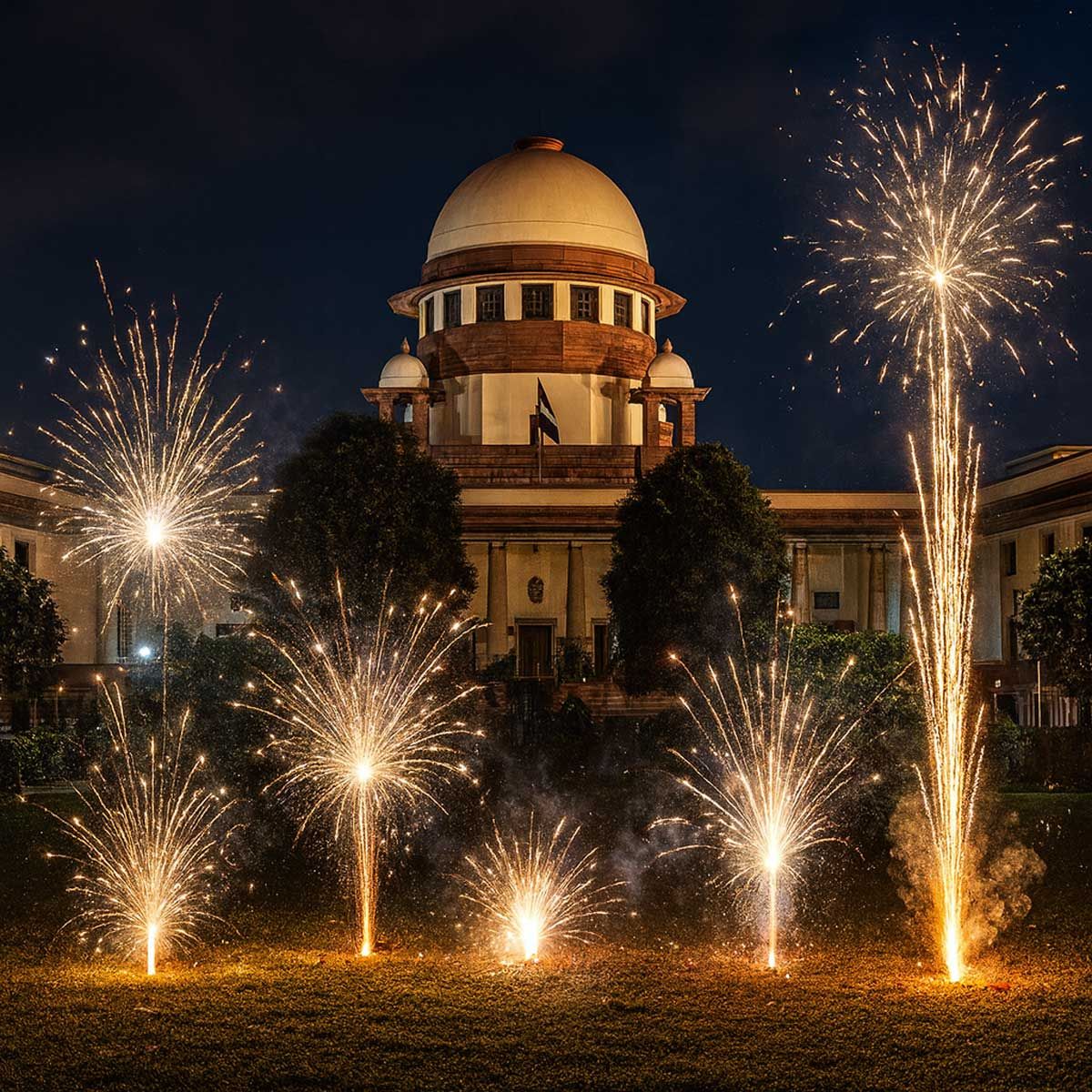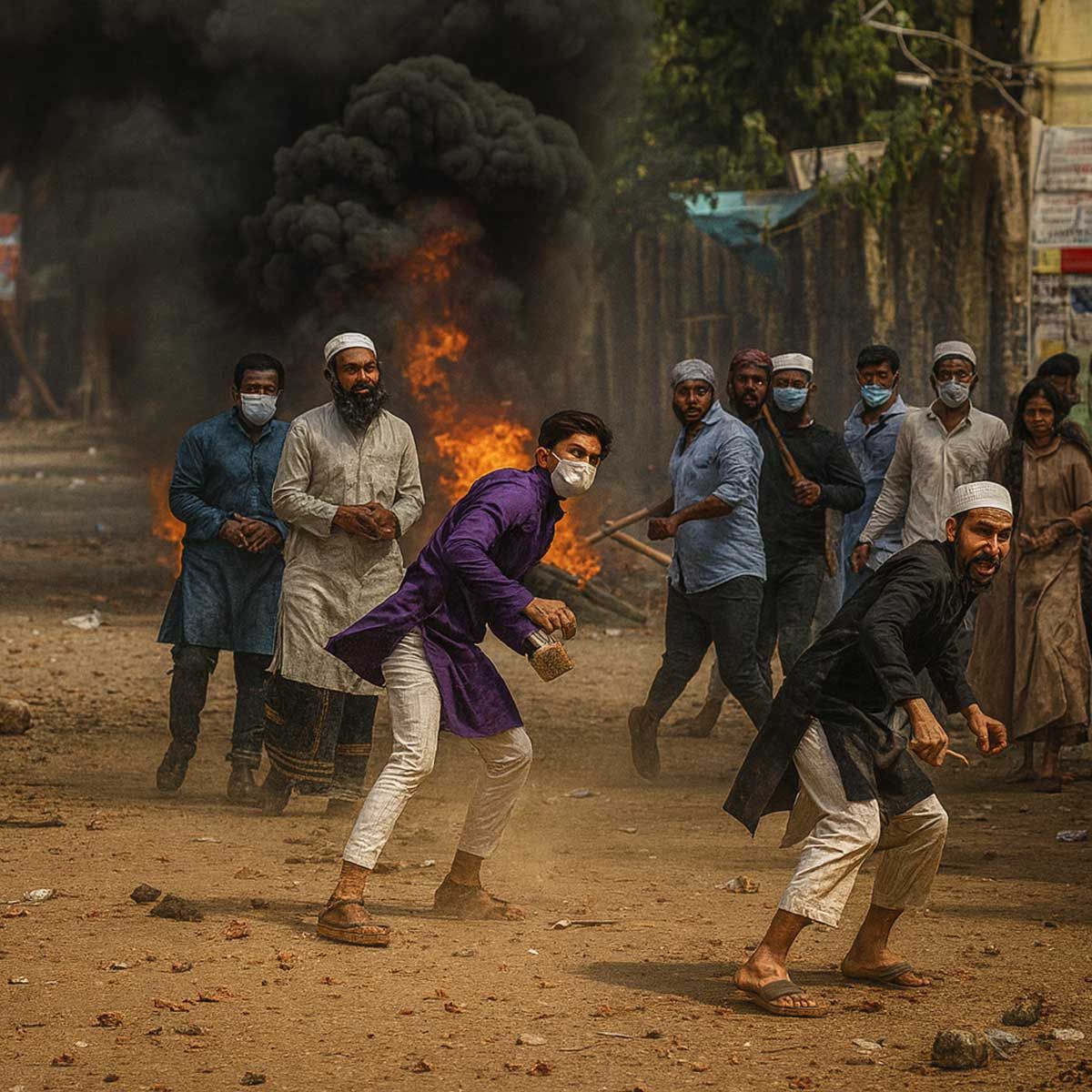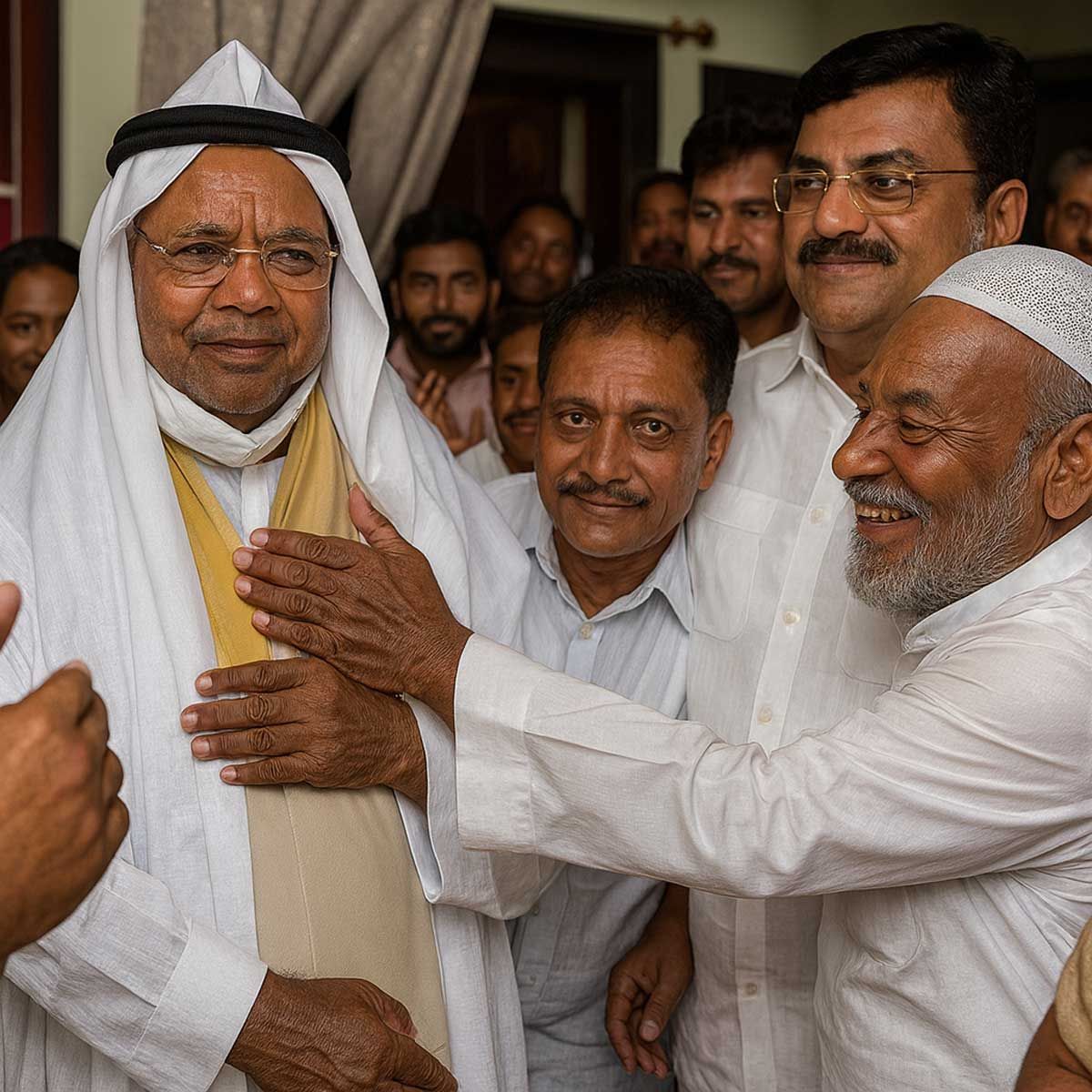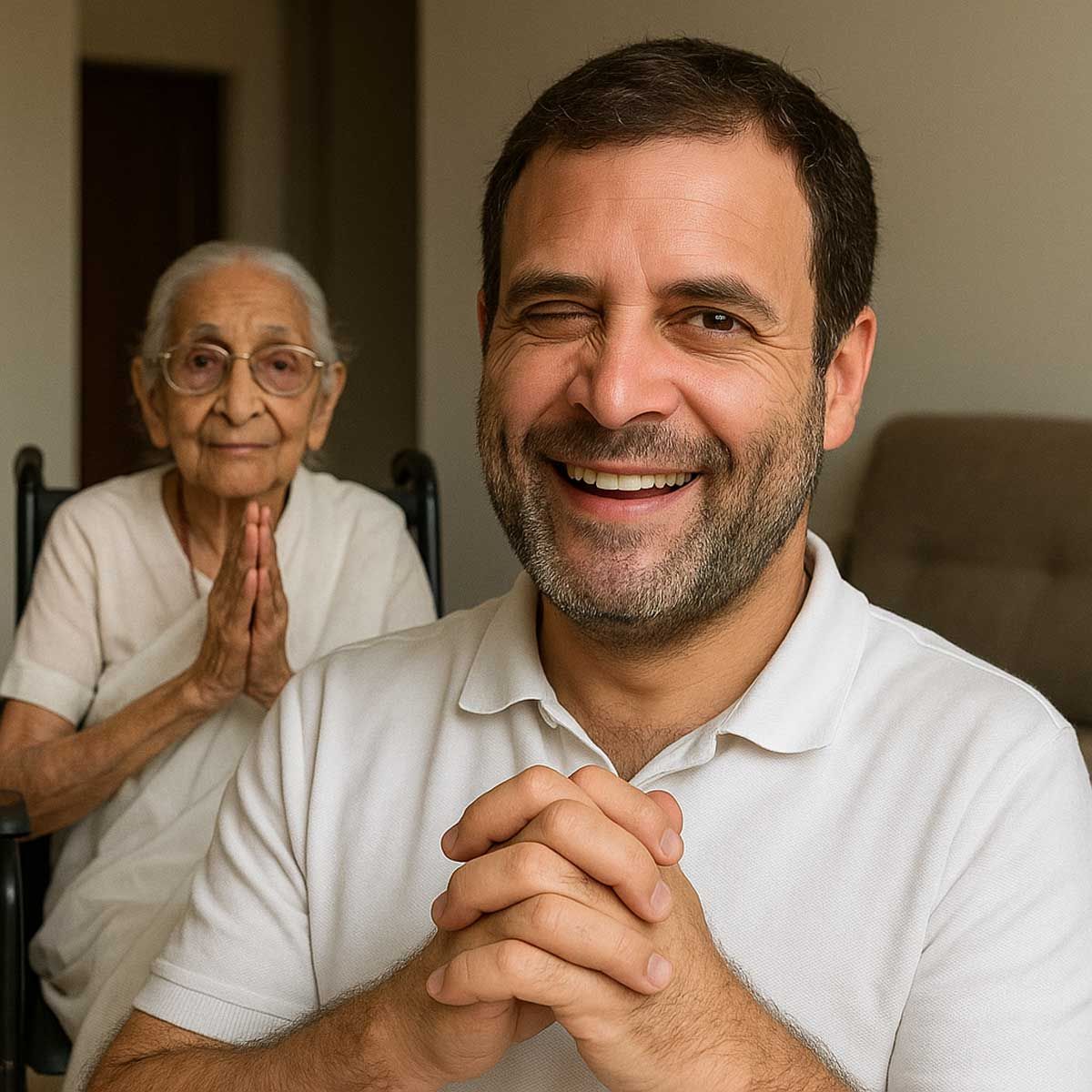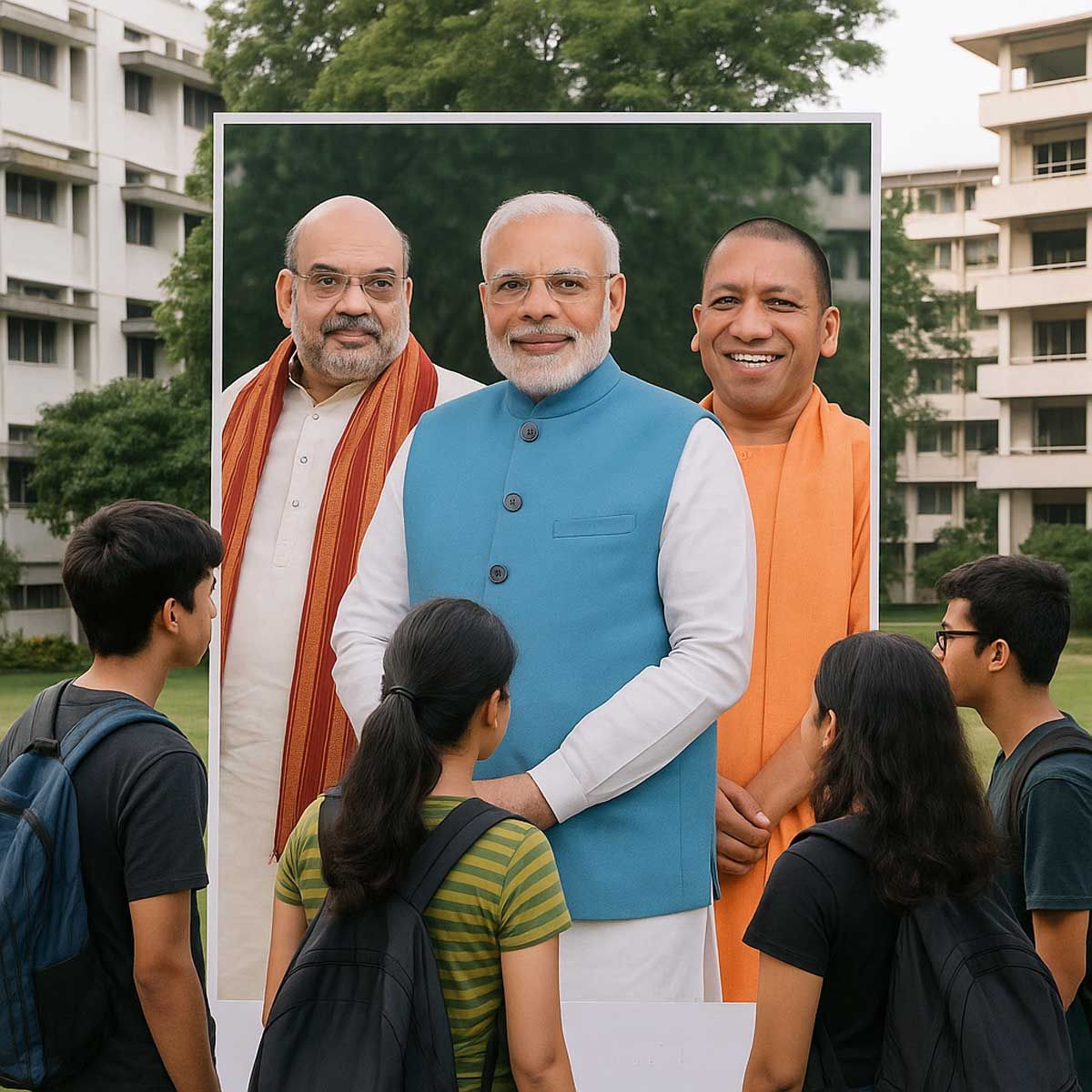More Coverage
Twitter Coverage
Satyaagrah
Written on
Satyaagrah
Written on
Satyaagrah
Written on
Satyaagrah
Written on
Satyaagrah
Written on
JOIN SATYAAGRAH SOCIAL MEDIA
Madras HC’s split verdict on Thiruparankundram Hill—where ancient Hindu temples and Jain caves stand desecrated—ignites outrage as Islamists demand animal sacrifice and claim the sacred land as Waqf, sparking a battle for dharmic heritage
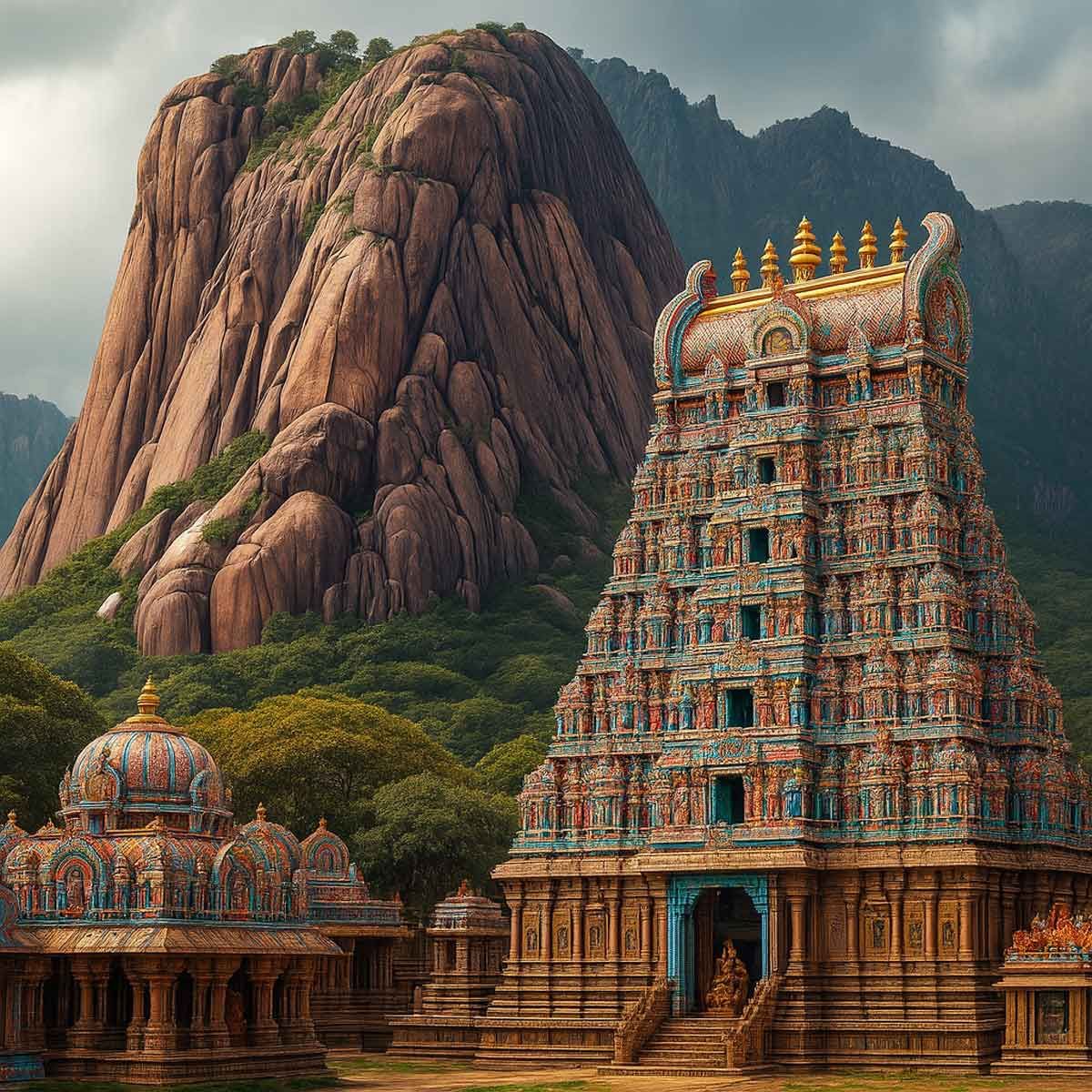
In a highly sensitive and controversial case, the Madras High Court bench delivered a split verdict on a series of petitions that challenged the practice of animal sacrifice at a Dargah situated on Thiruparankundram Hill in Madurai, Tamil Nadu. The petitions also sought to rename the hill. However, the court unanimously rejected any renaming effort, while expressing divided opinions on the issue of religious animal sacrifice.
|
The Thiruparankundram Hill has drawn national attention in recent months after strong protests from Hindu groups opposing the practice of animal sacrifice at the hilltop Dargah. The hill is religiously significant, not just for Muslims but also for Hindus and Jains. It houses the Sikandar Badhusha Avuliya Dargah, the Arulmigu Subramaniya Swamy Temple, the Kasi Viswanathar Temple, and ancient Jain caves, making it a deeply sensitive religious location for multiple communities.
The verdict was passed by a division bench consisting of Justices J Nisha Banu and S Srimathy. While both judges rejected the proposal to rename the hill, they sharply differed when it came to the validity of animal sacrifice rituals on the site.
Justice J Nisha Banu highlighted that the religious spaces of the different communities were physically separate and that their respective practices did not encroach on one another. She observed:
“The Thiruparankundram Hill, insofar as the Hindus are concerned and subject to the recognised rights of the Mohammedans, is not vested with any individual or any particular group or association of people, but is vested with Arulmigu Subramaniya Swamy Temple, Thiruparankundram. There is no allegations of violation of the rights of the Temple in respect of the Thiruparankundram Hills, as such rights have been recognised and confirmed by the Civil Courts.”
In her ruling dated 25th June, Justice Banu defended the tradition of animal sacrifice, explaining that the custom was not exclusive to one religion. She noted that both Hindus and Muslims had followed the practice for generations.
“…it is evident that the animal sacrifice in the Dargah located at Thiruparankundram Hills has been prevalent as a religious practice from time immemorial practices not only by Muslims but also by other communities as well. It is also pertinent to note that the Tamil Nadu Animals and Birds Sacrifices Prohibition Act, 1950 was repealed in 2004 by Tamil Nadu Act 20 of 2004. Therefore, as on date, there is no statutory bar against the traditional practice of animal sacrifice at religious places in Tamil Nadu,” she wrote.
However, Justice S Srimathy took a different stance. She disagreed with Banu’s view, stating there was no sufficient historical or legal basis to prove that such a practice was genuinely an ancient tradition at the Sikkandar Dargah.
“… the Court is of the considered opinion that the RDO is right in coming to conclusion that the parties ought to approach Civil Court to establish whether Kandoori animal sacrifice was an established practice in Sikkandar Dargah. Therefore, this Court has held that there is no such practice of Kanthoori animal sacrifice in Sikkandar Dargah. If at all they practice, the dargah may approach appropriate civil court to establish such practice,” she observed.
She further instructed that:
“The Dargah is directed to approach Civil Court to establish their practice of Kandoori animal sacrifice as well as prayer during Ramzan, Bakrith and other Islamic festival was prevailing prior to O.S.No.4 of 1920,” making it clear that documentation and legal validation would be required before any further action.
Madurai is turning to become Ayodhya of South..??
— विनोद बंसल Vinod Bansal বিনোদ বনসল వినోద్ బన్సాల్ (@vinod_bansal) June 22, 2025
Lakhs of Hindu Devotees gathering today to save the first abode of Lord Murugan from Jihadist on the Thiruparankundram hill in Madurai...
See what is its history and today's program...
A Muslim Dargah was built during the… pic.twitter.com/T2NnREREFI
Clash over Tradition and Territory: Background of the Dispute
The current legal and religious dispute stems from an incident that occurred on 27th December last year. A Muslim family led by 53-year-old Syed Abu Dahir from Malaiyadipatti attempted to carry animals up the hill to perform a sacrificial ritual. The police detained the group, which led to a wave of anger among local Muslims. Soon after, 20 Islamists protested against the police action, escalating tensions in the region.
This was followed by larger demonstrations in January this year, where Muslim groups demanded free and unrestricted access to the hilltop. They insisted that animal sacrifice was a long-standing religious tradition that should be respected and continued. During these protests, the hill was referred to by some as ‘Sikandar Hills’, a name that was not officially recognized and stirred controversy among the other religious communities.
In the same month, a serious confrontation occurred when Islamist groups, including members of the Social Democratic Party of India (SDPI)—the political wing of the banned terrorist outfit Popular Front of India (PFI)—attempted to carry out Qurbani (animal slaughter) at the hilltop. Police intervened and prevented the act, though they permitted the carrying and consumption of cooked meat at the Sikandar Dargah.
The situation intensified further when unknown individuals painted the ancient Jain caves green, an act seen as deliberately provocative by the Hindu community. This sparked fury, especially considering the caves’ archaeological and religious importance.
Reacting to the growing tension, Hindu groups like Bharat Hindu Munnani held protests in February, demanding a complete halt to animal sacrifices on the hill. The Hindu side argued that the hill is a sacred space with ancient temples and caves, and that allowing animal slaughter disrespected its religious sanctity.
Despite this, Muslim groups maintained their stance, claiming the entire hill as Waqf property and repeatedly arguing that animal sacrifice was their age-old tradition. Their continued usage of the term ‘Sikandar Hills’ further fueled the conflict and deepened communal rifts in the area.
 Support Us
Support Us
Satyagraha was born from the heart of our land, with an undying aim to unveil the true essence of Bharat. It seeks to illuminate the hidden tales of our valiant freedom fighters and the rich chronicles that haven't yet sung their complete melody in the mainstream.
While platforms like NDTV and 'The Wire' effortlessly garner funds under the banner of safeguarding democracy, we at Satyagraha walk a different path. Our strength and resonance come from you. In this journey to weave a stronger Bharat, every little contribution amplifies our voice. Let's come together, contribute as you can, and champion the true spirit of our nation.
 |  |  |
| ICICI Bank of Satyaagrah | Razorpay Bank of Satyaagrah | PayPal Bank of Satyaagrah - For International Payments |
If all above doesn't work, then try the LINK below:
Please share the article on other platforms
DISCLAIMER: The author is solely responsible for the views expressed in this article. The author carries the responsibility for citing and/or licensing of images utilized within the text. The website also frequently uses non-commercial images for representational purposes only in line with the article. We are not responsible for the authenticity of such images. If some images have a copyright issue, we request the person/entity to contact us at This email address is being protected from spambots. You need JavaScript enabled to view it. and we will take the necessary actions to resolve the issue.
Related Articles
- "लताड़": Madras HC slams Tamil Nadu police for FIR errors in Anna University assault case, orders ₹25 lakh compensation, women-led SIT probe, victim’s fee waiver, action on FIR leak, and police lapses, ensuring privacy, dignity, and justice for the victim
- "Tradition on trial": In a backdrop of temple tensions, the Supreme Court agrees to hear pleas on Tamil Nadu's move to appoint 'non-believers' as priests. The state's rich heritage now intersects with faith, politics, and looming threats of vandalism
- “Chaos is merely order waiting to be deciphered”: MoP issue settled; government cannot conveniently cite views of few judges on MoP to oppose Collegium recommendations, scheme of our constitution requires court to be final arbiter of law ~ Supreme Court
- "Control your own destiny or someone else will": In a shocking incident, a Dikshitar of the revered Chidambaram Temple in Tamil Nadu assaulted by female police officer, HR&CE officials climb atop Kanagasabai medai while trying to take over mandir forcibly
- "गोलमाल है भाई सब…": Justice Karnan was jailed for naming 20 corrupt judges in a letter to PM, stripped of powers, silenced & declared unfit, while Justice Varma, caught with crores in cash, faced no FIR and reappointed as a judge in Allahabad High Court
- A fire, burnt cash, and a judge under suspicion—yet the Supreme Court refuses an FIR against Justice Yashwant Varma, asking petitioners to first write to the President and PM, shielding its own while justice quietly exits the courtroom, unheard and unseen
- Calcutta Quran Petition: A petition to ban the Quran altogether was filed 36 years ago, even before Waseem Rizvi petitioned for removing 26 verses from Quran
- "Insaaf ke parde main ye kya julm hai yaron, dete ho saza aur khata aur hi kuch hai": SC grants Fact-checker Mohammed Zubair interim bail in all Cases, orders his immediate release, says we cannot restrain a journalist from writing, he can tweet
- Milords, why demand to stand above criticism when democracy thrives on questioning, for Justice B Sudershan Reddy’s Salwa Judum verdict shows even judges must face accountability, no matter how powerful their robes once were
- "Spirit of truth and the spirit of freedom-they are the pillars of society": Social media today has become a powerful medium for exchange of views, expressing opinions and thus has become important pillars on which our democracy stands: Bombay High Court
- "I seem to smell the stench of appeasement in the air": Chief Justice of India DY Chandrachud urged parliament to revise the age of consent for sex under Protection of Children from Sexual Offences Act, saying this provision poses difficulties for judges
- “Words have no wings but they can fly a thousand miles“: Justice Ajay Rastogi - "If You decide against the Govt, You will be labeled as an independent judge, if you make a comment against the Govt, everyone including media is happy; this should change"
- "किजिये मीटिंग मीटिंग": In response to the 'absolute failure of state machinery,' Calcutta High Court lambasts the West Bengal govt, threatening to close RG Kar Hospital & relocate patients, while ordering a CBI probe into the alarming vandalism incident
- “If you’re good enough to hit the gym at 70, why not a courtroom?”: Age of retirement of Supreme Court and High Court Judges needs to be increased in sync with increase in the longevity and advancement in medical sciences, Parliamentary Committee
- "If it were not for injustice, man would not know justice": Supreme Court stayed arrest of the resigned principal of Indore's Government New Law College, Dr Inamur Rahman, in an FIR registered over "Hinduphobic" book in the college library

















